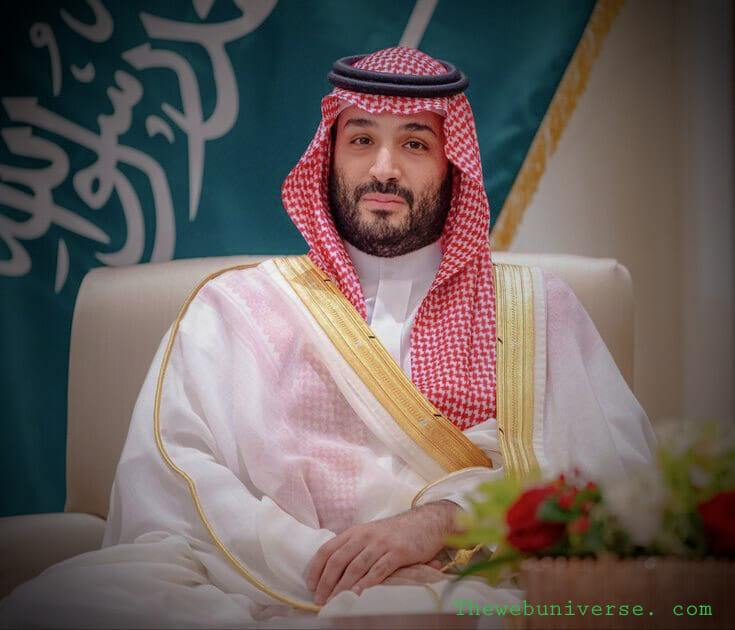Talks on Normalization with Israel Put on Hold by Saudi Arabia: Report

A source informed AFP on Saturday that Saudi Arabia has decided to halt talks regarding potential normalization of relations with Israel, citing the ongoing conflict between Israel and the Palestinian group Hamas.
Hamas initiated a large-scale offensive against Israel on October 7, resulting in the loss of 1,300 lives. In response, there has been a retaliatory bombing campaign, claiming the lives of at least 2,215 people in the Gaza Strip. This occurred prior to a possible Israeli ground invasion of the territory.
Following the large-scale offensive by Hamas on October 7, which claimed the lives of 1,300 Israelis, a retaliatory bombing campaign has led to the death of at least 2,215 individuals in the Gaza Strip.
With the potential of an Israeli ground invasion looming, the military has advised over one million residents of northern Gaza to relocate to the southern part of the blockaded territory.
A source familiar with the discussions informed AFP that Saudi Arabia has chosen to temporarily suspend talks about potential normalization and has communicated this decision to US officials.
This development coincided with US Secretary of State Antony Blinken’s meeting with his Saudi counterpart on Saturday, which was part of his ongoing six-nation tour of the region.
The Gulf nation, housing the most sacred sites in Islam, has never officially acknowledged Israel and abstained from participating in the 2020 US-brokered Abraham Accords. This historic agreement witnessed neighboring Gulf countries like Bahrain and the United Arab Emirates, as well as Morocco, establishing formal diplomatic ties with Israel.
The administration of US President Joe Biden had been vigorously advocating for Saudi Arabia to follow suit in recent months.
Crown Prince Mohammed bin Salman, effectively governing in place of his aging father, King Salman, had outlined certain prerequisites for normalization. These prerequisites included receiving security assurances from Washington and assistance in the development of a civilian nuclear program.
During a recent interview with Fox News, Prince Mohammed expressed optimism, stating that “every day we get closer” to reaching an agreement. However, he also emphasized the significance of addressing the Palestinian issue, stating that it remained “very important” for Riyadh.
From the outset, many analysts considered the likelihood of this deal a distant prospect, even before the outbreak of the conflict.
Saudi analyst Hesham Alghannam pointed out that “Normalisation between the Kingdom and Israel is an American initiative and project that the Kingdom has welcomed, provided the US could broker an agreement that resolved the Israeli-Palestinian conflict, one acceptable to the Palestinians.”
He further explained, “In reality, Israel was not genuinely prepared to reach an agreement with the Palestinians that met even their basic needs.”
Joost Hiltermann, the Middle East director of the International Crisis Group, asserted that “there is no conceivable way that any Arab nation can engage in meaningful discussions about normalizing relations with Israel, especially when their populations witness the events unfolding in Gaza.”
‘A Troubling Scenario’
Over the past week, as Hamas initiated its offensive against Israel, Riyadh has grown progressively concerned about the well-being of Palestinians residing in the Hamas-governed Gaza Strip. Israel has carried out thousands of airstrikes and issued evacuation orders for the northern region of the territory, leading to the mass exodus of thousands.
On Friday, Saudi Arabia openly condemned the forced displacement of Palestinians within Gaza and the assaults on “vulnerable civilians.” This marks the harshest language of criticism directed at Israel by Saudi Arabia since the commencement of the conflict.
Following his meeting with Blinken on Saturday, Saudi Foreign Minister Prince Faisal bin Farhan likewise expressed his distress over civilian casualties.
#WATCH | Riyadh, Saudi Arabia | Saudi Foreign Minister Prince Faisal Bin Farhan says, "We need to find a way to quickly de-escalate the situation (Israel-Palestine conflict)…at least stopping the guns and working towards addressing the cause of humanitarian challenges. I have… pic.twitter.com/MaH4nE1SHb
— ANI (@ANI) October 14, 2023
“It’s an alarming situation, a deeply challenging one. The most affected by this crisis are the civilian populations on both sides,” he remarked.
“Our primary focus now should be to halt further civilian suffering. To achieve this, we must swiftly de-escalate the conflict, striving to restore peace, at least by silencing the guns. Simultaneously, we need to address the pressing humanitarian issues.”
Blinken, on his part, emphasized the ongoing efforts to establish “safe zones” within Gaza and create “humanitarian corridors” to ensure that aid reaches those in need.
“None of us wish to witness the suffering of civilians, whether in Israel, Gaza, or anywhere else, and we are working collectively to do our utmost to safeguard them,” he stated.
In recent days, Riyadh has been actively engaged in diplomatic endeavors to “quell the ongoing escalation,” reaching out to leaders both within and outside the region.
On Thursday, Saudi state media reported that Prince Mohammed engaged in discussions with Iranian President Ebrahim Raisi regarding “the current military situation in Gaza and its surroundings.” This marked their first conversation since the two nations announced a surprising rapprochement brokered by China in March, ending seven years of severed ties.






